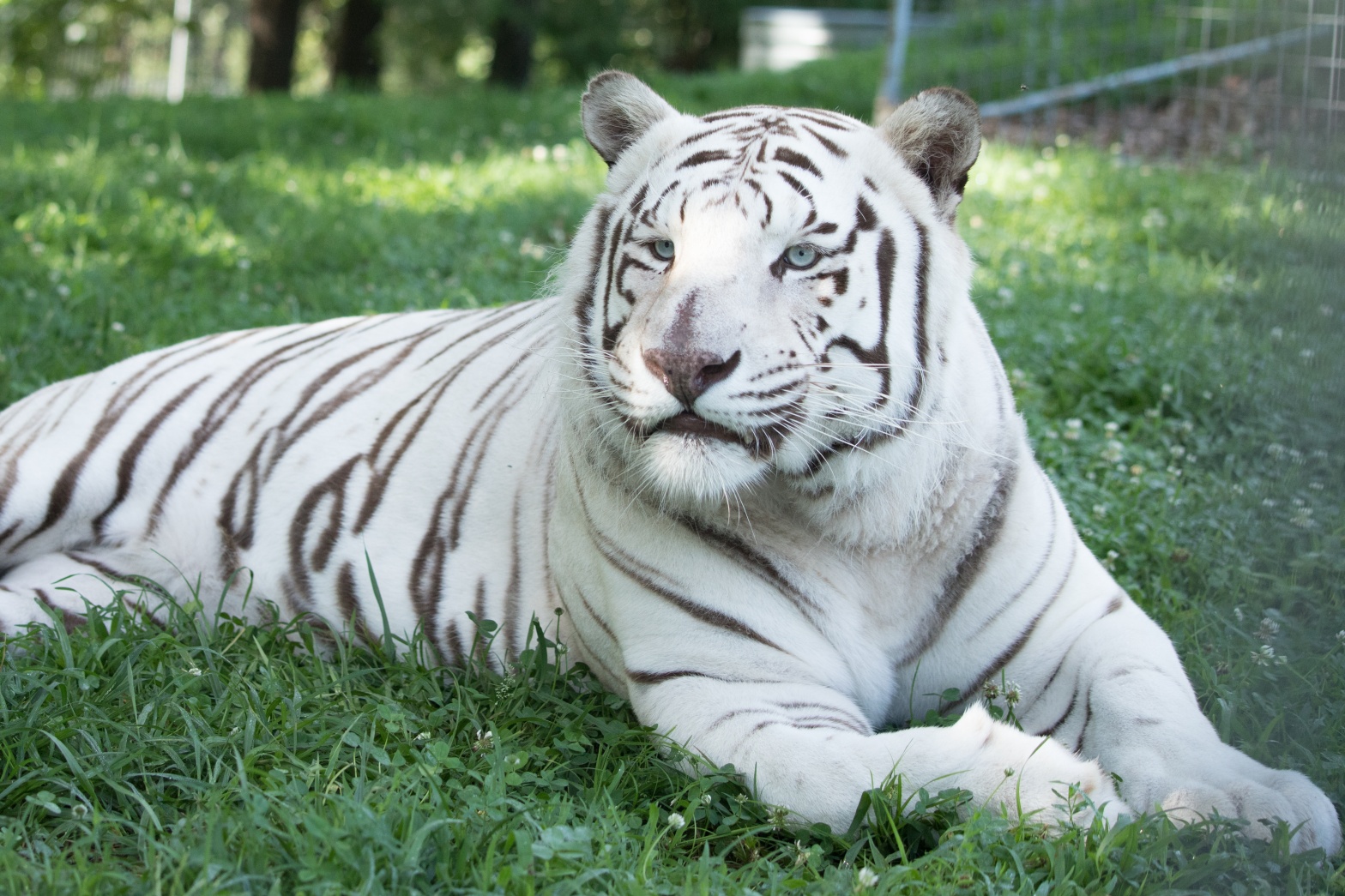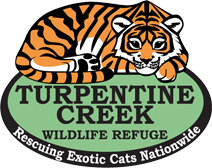
For hundreds of years, people have used wild animals to draw an audience. Initially, animals were plucked from the wild and forced them to be around people in captivity. Over time, people began over breeding animals in captivity with only one goal in sight: to make money. Turpentine Creek focuses on rescuing big cats from entertainment/private ownership and gives them a second chance at life. We have rescued not only big cats but also small cats, bears, and other mammals. We are a true GFAS accredited sanctuary, meaning we never force our animals to do anything they do not want to do. TCWR is their forever home.
What is “entertainment?”
Entertainment is anything that pleases an audience. People use animals as movie actors, props, and disposable objects. They become unwilling participants in an industry that brings joy to people but sequentially gives animals a horrible life. Magic shows, circuses, roadside zoos, cub petting facilities, or other industries using exploiting big cats and other exotic felines for profit.
Forced to participate in unnatural behaviors
Wild animals learn survival skills when they are young by their mothers. They explore their territory and eventually venture further out to the point where they can protect themselves. When used for entertainment, they are not able to be their true wild self. They involuntarily participate in abnormal behaviors to entertain people.
In circus acts, ringmasters force tigers and lions to jump through fiery hoops and sit in unnatural ways. Bears wear costumes to ride a bicycle or walk on a ball. Their trainer abuses them until they are too frightened to move, forcing them to perform tricks. Roadside zoos may allow the handling of baby animals or will force them to be visible to the public because “that’s what they paid for.” If they do anything wrong, they are punished by not getting food or forced to stay in their cage with little room. If they attack or use any instincts, they could be hit, beaten, or worse, killed.
Living conditions
Traveling shows force their animals to live in small cages on trailers with little ventilation. The simple necessities such as exercise and access to clean food and water not offered to them. Their confines are not regularly cleaned by the people who own them, forcing the animals to live in their waste. Multiple animals may be housed in one cage, causing aggression. Ignoring species’ natural social dynamics, solitary animals forced to live together while social animals may live alone. Nocturnal animals perform during the day instead of sleeping their average amount of time.
When finally given access to outside of their cages, they have heavy chains around their necks. If they move the wrong way, hit with sticks and whips. Walking around is not a reward; they are usually involuntarily participating in “training.” The training they go through is not based on positive reinforcement and consists of repetitive tricks for shows. If they do not perform correctly, trainers may hit them repeatedly. Furthermore, animals will possibly be starved.
Cub petting facilities make a profit by allowing the public to hold exotic baby animals, such as lions, tigers, bears, mountain lions, etc. To fuel this industry, these facilities speed-breed females, forcing her to give birth faster than allows her body to heal. The cubs get immediately taken after they are born, allowing her to become pregnant more quickly. The babies can only legally be held from 8-12 weeks, and are typically euthanized after the age range, making space for new cubs.
What happens when they are no longer useful?
When the animals are no longer of use to the owner or performer, they are sold to other roadside exhibits, forced to live in small cages in buildings, or even worse, killed. If animals can no longer make a profit or become ill and require medical care, they are no longer profitable to the owner. If a tiger or lion becomes sick while they are traveling in a circus or magic show, there is no correct medical care, and many will pass away before given medical attention. Many continually suffer without the care they deserve.
How to help
State and federal protections for animals used in entertainment are scarce. The federal Animal Welfare Act does not even cover many of the animals used for human amusement. Animals do not have to suffer, and you can help! More and more countries are stepping up and changing the laws against the abuse. Choosing to avoid traveling animals shows or roadside zoos can help show that they are no longer relevant. Research before you go to a facility to make sure they focus on animal welfare, not entertainment. Check out their website or even call and ask about the care they provide for an animal. Let your representatives know you support the Traveling Exotic Animals and Public Safety Protection Act (TEAPSP), which would prohibit the use of exotic and wild animals in traveling performances.
Learn more
http://www.ad-international.org/animals_in_entertainment/
https://www.humanesociety.org/sites/default/files/docs/2019-01-28_Toolkit_Wild%20animal%20acts.pdf
https://www.pawsweb.org/animals_in_traveling_shows.html
https://www.bornfreeusa.org/2005/10/20/ten_fast_facts_about_animals_in_entertai/
